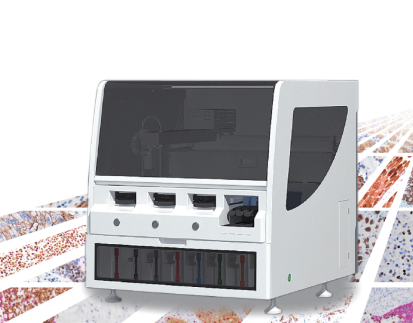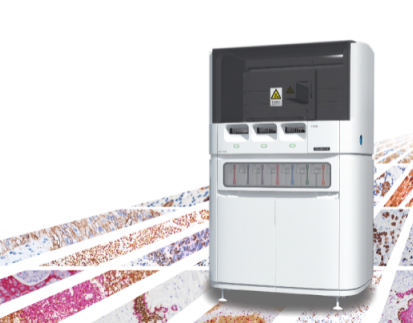Guerras tarifárias crescentes e a ascensão da imunohistoquímica doméstica no apoio à patologia chinesa
 2025-05-16
2025-05-16
Por admin
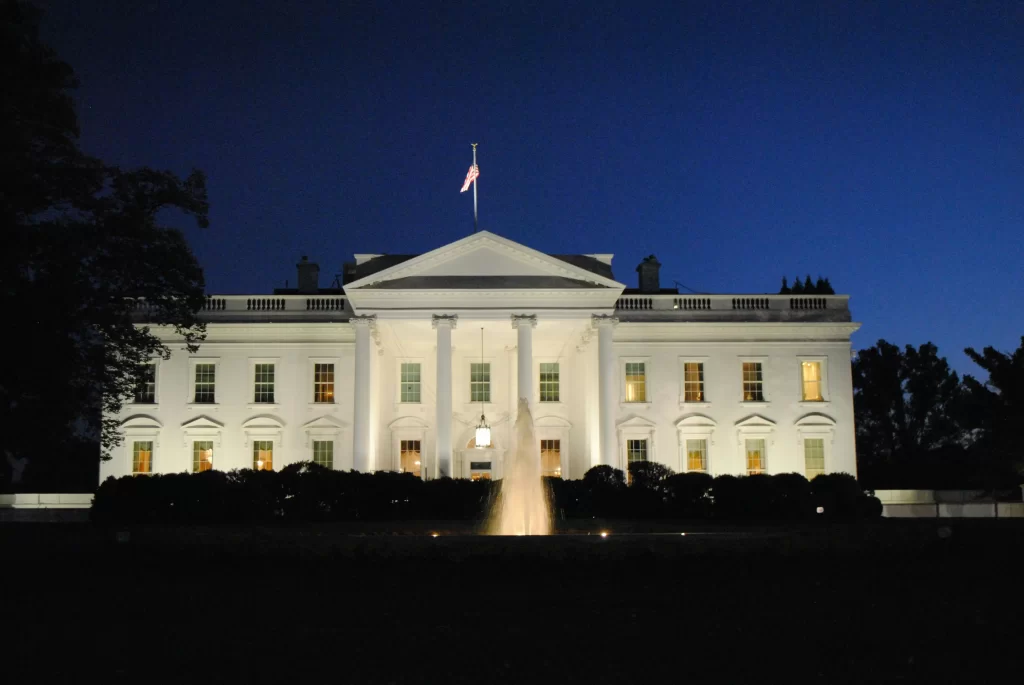
01. Tariff Wars Grow Stronger
On April 9, 2025 (Eastern Time), the White House Press Secretary declared that the United States would add a 50% tariff on all Chinese imports. This raised the total tariff rate to a shocking 104% for the year. In reply, on the same day, China’s State Council Tariff Commission released a notice. It was effective April 10, 2025, at 12:01 PM. The notice stated an 84% tariff increase on all goods from the United States, added to current rates. Hours later, former U.S. President Donald Trump intensified the trade conflict. He announced an instant tariff hike on Chinese goods sent to the U.S., from 84% to 125%.
This back-and-forth tariff battle has caused ripples across global markets. It affects industries like technology and healthcare. The healthcare field, especially pathology, is preparing for big hurdles. The prices of imported equipment, reagents, and raw materials are soaring. Yet, amid these difficulties, Chinese companies like Celnovte are stepping forward. They are using creativity to offer locally made solutions. These solutions strengthen the nation’s pathology industry.
02. Effects of Tariff Increases on the Pathology Sector
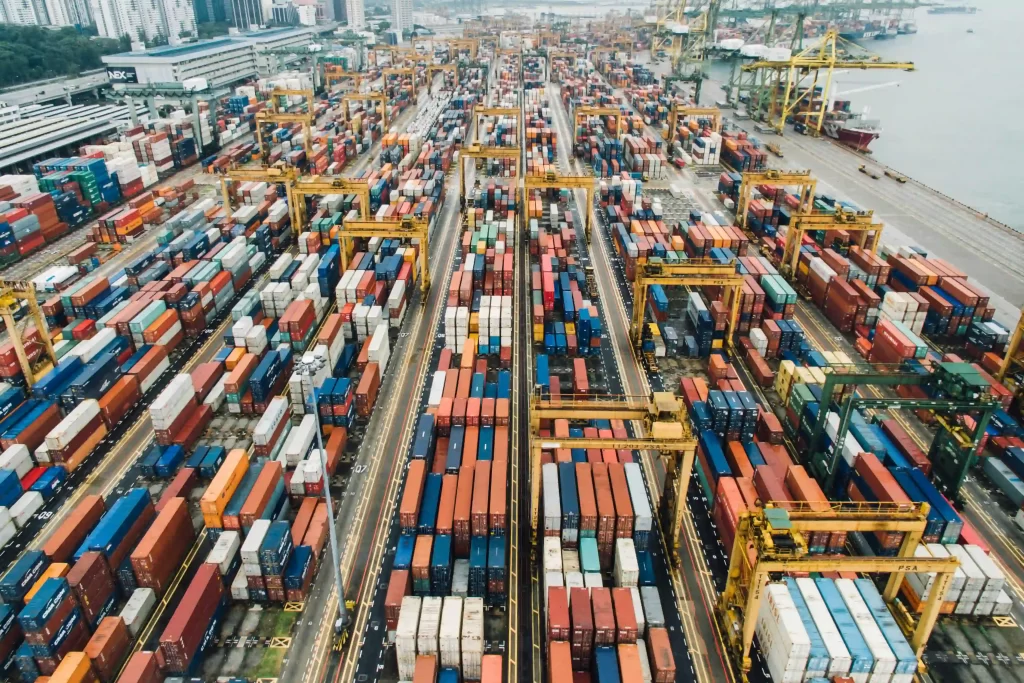
The growing tariff conflict has serious effects on the pathology industry. This industry depends greatly on advanced diagnostic equipment and reagents. Many of these come from the United States. Below are the main problems facing the sector:
Higher Costs for Imported Equipment and Reagents
The sharp tariff rise leads to increased costs for U.S.-made pathology equipment and reagents. Hospitals and diagnostic labs already have tight budgets. Now, they face heavy financial strain. For example, imunohistoquímica (IHC) systems are vital for cancer diagnostics. These systems often use imported parts. The 104% U.S. tariff and China’s 84% counter-tariff on American goods make these tools very costly. This could limit patients’ access to modern diagnostics.
Price Jumps and Supply Risks for Raw Materials
Many Chinese pathology manufacturers rely on imported raw materials, such as antibodies and secondary antibodies, to make diagnostic reagents. Most local companies cannot develop these materials on their own. This makes they open to price spikes and supply chain issues caused by tariffs. Supply shortages are a big worry. Any disruption could stop production. This would delay important diagnostic tests. In turn, it could harm patient health.
These issues show the urgent need for independence in China’s pathology industry. Local innovation is now more important than ever. It can reduce reliance on foreign suppliers. It also ensures the healthcare system remains steady.
03. Celnovte: Strengthening Chinese Pathology with Local Immunohistochemistry Solutions
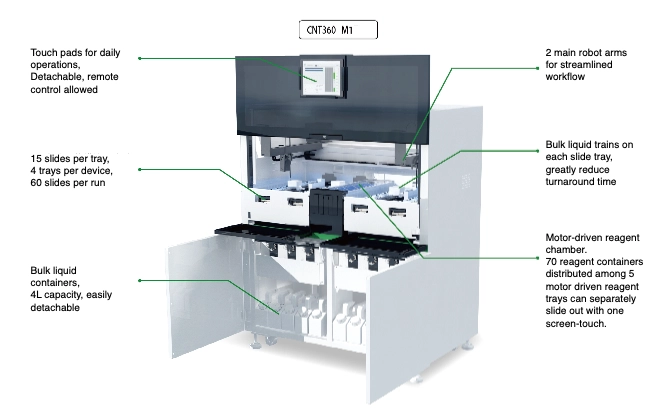
Despite these obstacles, Celnovte shines as a symbol of creativity and strength. It is dedicated to improving Chinese pathology with advanced technology. Celnovte has made great progress in creating fully local immunohistochemistry solutions. By focusing on independent innovation, the company is cutting China’s need for imported products. It also supports the nation’s healthcare system during this tough time.
A Champion in Independent Innovation
Celnovte, based in China, has become a leader in the pathology industry. Its goal is to “enable accurate diagnostics and enhance patient health.” The company has invested heavily in research and development (R&D). Celnovte holds over 100 patents. This shows its dedication to overcoming technical challenges. It also promotes self-reliance in diagnostic solutions.
One of Celnovte’s top innovations is the MicroStacker™ Micro-Polymer Layering Method. This is a very sensitive secondary antibody detection system. This technology has broken the control of imported IHC products. It is a major achievement for Chinese pathology. Unlike older detection systems, MicroStacker™ provides better accuracy and clarity. It allows precise detection of biomarkers in tissue samples. This innovation matches the quality of foreign competitors. It also offers a budget-friendly option. This makes it perfect for today’s tariffுtariff-driven economy.
Wide Range of Antibodies and Diagnostic Solutions
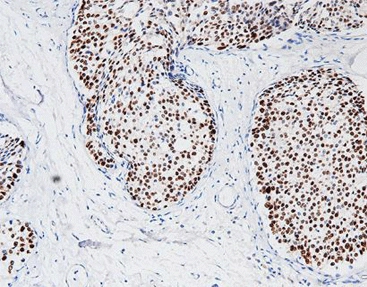
Celnovte has created over 100 unique antibodies. These cover many diagnostic uses. They include key companion diagnostic antibodies like ER (Estrogen Receptor), PR (Progesterone Receptor), HER2, e PD-L1. These are crucial for tailored cancer treatment. Notably, Celnovte’s ER, PR, and HER2 antibodies have earned Class III registration certificates. This proves their quality and compliance with regulations. Also, antibodies like PD-L1 and CD20 are in clinical trials. This expands Celnovte’s offerings further.
Using its unique technology platforms, Celnovte has achieved a complete breakthrough in immunohistochemistry. The company provides a full set of IHC products and services. These include staining systems, reagents, and antibodies. They are designed to meet the varied needs of pathology labs. This all-in-one approach ensures Chinese hospitals and diagnostic centers have access to dependable, high-quality tools. This holds true even as tariffs disrupt global supply chains.
Supporting Chinese Pathology During Tariff Challenges
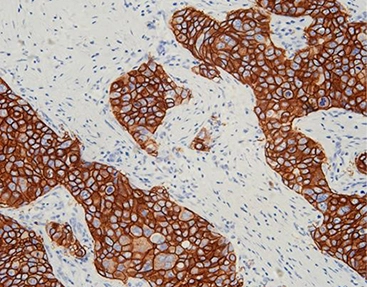
The tariff conflict highlights the value of local innovation. It is key to protecting China’s healthcare system. Celnovte’s ability to produce high-quality, affordable IHC solutions makes it a vital partner for pathology departments across the country. By reducing dependence on imported equipment and reagents, Celnovte helps hospitals control costs. It also maintains diagnostic accuracy. Moreover, the company’s strong supply chain and local production abilities reduce the risk of supply shortages. This ensures steady access to essential diagnostic tools.
Celnovte’s efforts go beyond technology. The company works closely with healthcare institutions and research groups. This advances the field of pathology. Through training programs, technical support, and partnerships, Celnovte helps pathologists adopt modern diagnostic methods. This ultimately improves patient care throughout China.
A Plan for the Future
Looking forward, Celnovte is ready to lead the change in Chinese pathology. The company keeps investing in R&D. It plans to grow its antibody offerings. It also aims to develop next-generation diagnostic platforms. By staying at the forefront of innovation, Celnovte seeks to meet domestic needs. It also wants to compete globally.
In the context of the ongoing tariff conflict, Celnovte’s successes are a strong reminder of Chinese innovation’s potential. As the nation faces economic hurdles, companies like Celnovte are building a path to a stronger, self-reliant healthcare system. By offering locally made immunohistochemistry solutions, Celnovte is not just aiding Chinese pathology. It is shaping the future of precise diagnostics.
Conclusão
The intensifying U.S.-China tariff conflict has created major challenges for the pathology industry. Rising costs and supply chain risks threaten access to vital diagnostic tools. However, Celnovte is meeting the challenge. It offers creative, locally produced immunohistochemistry solutions. These empower Chinese pathology. With innovations like the MicroStacker™ system and a growing antibody portfolio, Celnovte is reducing China’s reliance on imports. It also ensures the healthcare system remains stable. As the tariff conflict persists, Celnovte’s dedication to independent innovation will play a key role. It will safeguard the future of Chinese pathology. It will also bring hope and accuracy to patients nationwide.







